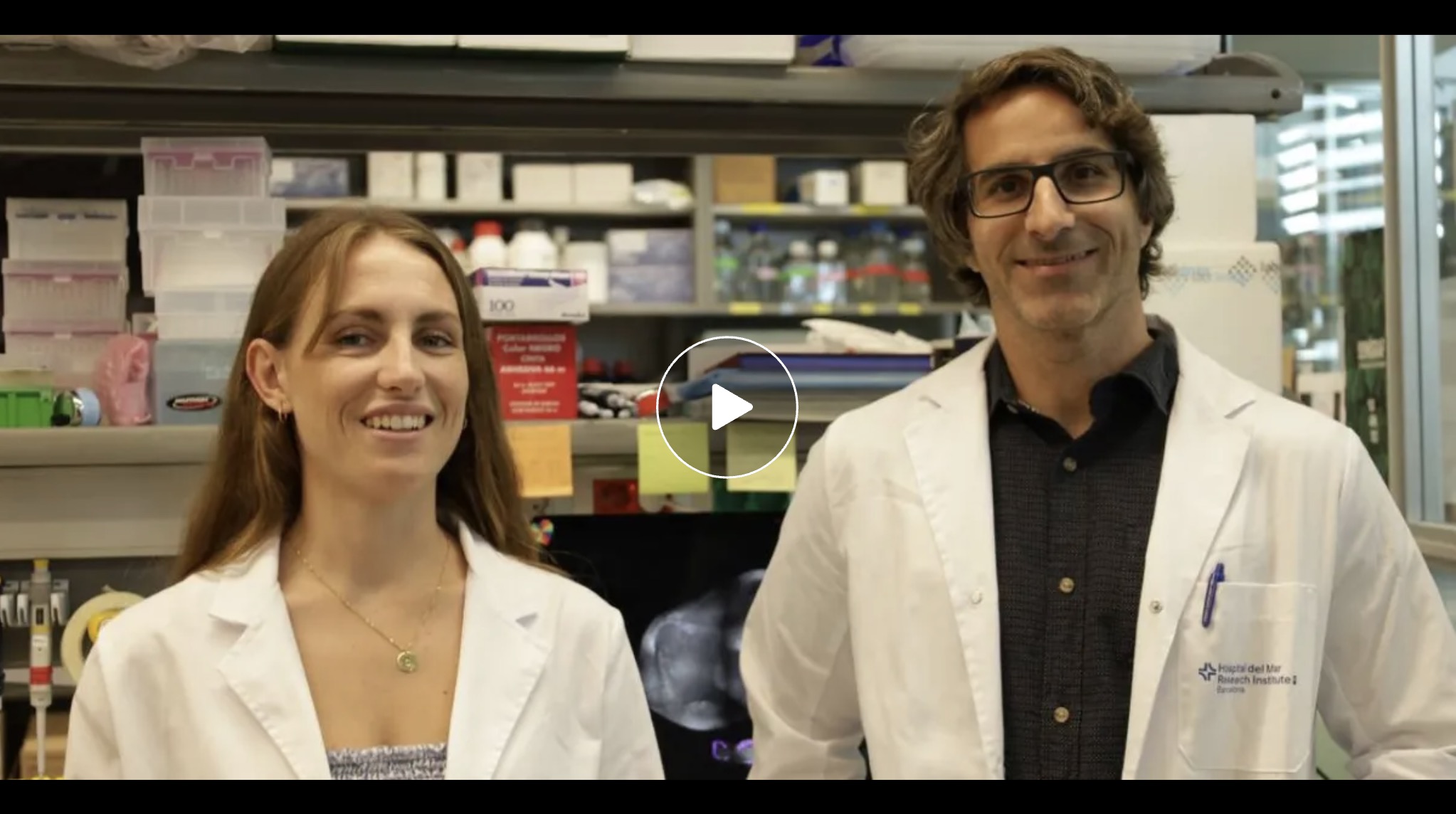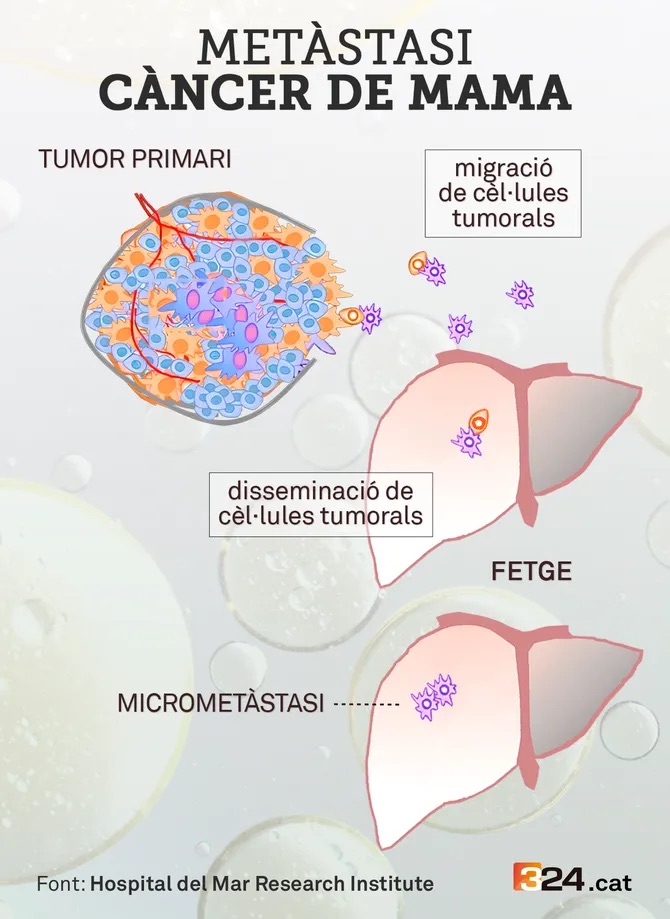OUR WORK_
Metastasis
Dynamics & Micrometastasis
We utilize breast cancer experimental metastasis models to unravel the complexities of the metastatic process, focusing particularly on the early seeding of cancer cells in distant organs and the biology and immunology of micrometastases. These poorly understood areas hold the potential to provide valuable insights for the development of novel therapeutic strategies.
Breast cancer
immunotherapy
Immunotherapy has shown great clinical benefits in different cancer types, but not yet for breast cancer. We seek for the molecular configurations of the different breast cancer subtypes that can render breast cancer more sensitive to immune checkpoint blockade immunotherapy.
RNA THERAPY
Development of a specific mRNA therapy for cell fate differentiation to induce tumor immunogenicity and vulnerability to immunotherapy. RNA therapies represents a unique opportunity to design quick therapies and quick clinical application fullfiling the goal of precision medicine and translational oncology.
TUMOR
PHENOTYPIC HETEROGENEITY
We study specifically these highly aggressive poorly differentiated tumor cells within the tumor heterogeneity of breast cancer. We decipher the dynamics of EMT/MET and cellular plasticity during cancer metastasis. Understanding the phenotypic heterogeneity and cellular plasticity of the tumors, we will be able to find specific therapies to target these slippery cells to conventional therapies used in breast cancer treatment.
OUR RESEARCH
PHILOSOPHY
It goes from the discovery of new fundamental biological knowledge to the generation of translational findings for the quick clinical application of novel therapies to STOP cancer metastasis.
WHY
BREAST CANCER?
It is the most common cancer type among women and the second cause of cancer mortality in females. Our social commitment is to reduce the fear and the pain caused by breast cancer among women by finding new promising therapeutic strategies.
WHY
METASTASIS?
Metastasis accounts for more than 90% of cancer-related deaths. Understanding how to stop dreadful stage will lead to the development of new treatments, which is an imperative clinical need.
Nuevo hallazgo contra la metástasis del cáncer de mama: Identifican la proteína TIM-3 que suprime el sistema inmunitario
Los investigadores españoles identifican la proteína TIM-3 que ayuda a las células cancerosas a expandirse hacia otros órganos
Càncer de mama: identifiquen les cèl·lules que actuen com a llavors de la metàstasi
Investigadors de l'Hospital del Mar vinculen per primer cop una proteïna a la metàstasi en el càncer de mama i obren la porta a tractaments preventius
Look deep into nature, and then you will understand everything better
― Albert Einstein
ROZALÉN C, SANGRADOR I, AVALLE S, BLASCO-BENITO S, TZORTZI P, SANZ-FLORES M, PALOMEQUE JA, TORREN-DURAN P, DALMAU M, BRUNEL H, COLL-MANZANO A, PÉREZ-NUÑEZ I, MARTOS T, SERVITJA S, PÉREZ-BUIRA S, CHACÓN JI, GUERRERO-ZOTANO A, MARTÍNEZ DE DUEÑAS E, GUILLÉN Y, COMERMA L, BERMEJO B, BIGAS A, CASANOVA-ACEBES M, ALEMANY A, ROJO F, ALBANELL J, CELIÀ-TERRASSA T*
TIM3+ breast cancer cells license immune evasion during micrometastasis outbreak. Cancer Cell.
REA A, SANTANA-HERNÁNDEZ S, VILLANUEVA J, SANVICENTE-GARCÍA M, CABO M, SUAREZ-OLMOS J, QUIMIS F, QIN M, LLORENS E, BLASCO-BENITO S, TORRALBA-RAGA L, PEREZ L, BHATTARAI B, ALARI-PAHISSA E, GEORGOUDAKI A-M, BALAGUER F, JUAN M, PARDO J, CELIÀ-TERRASSA T, ROVIRA A, MÖKER N, ZHANG C, COLONNA M, SPANHOLTZ J, MALMBERG K-J, MONTAGUT C, ALBANELL J, GÜELL M, LÓPEZ-BOTET M, MUNTASELL A
Enhancing human NK cell antitumor function by knocking out SMAD4 to counteract TGFβ and activin A suppression. Nature Immunology.
PÉREZ-NUÑEZ I, ROZALÉN C, PALOMEQUE JA, SANGRADOR I, DALMAU M, COMERMA L, HERNÁNDEZ-PRAT A, CASADEVALL D, MENENDEZ S, DAN LIU D, SHEN M, BERENGER J, RIUS RUIZ I, PEÑA R, MONTAÑÉS JC, ALBÀ MM, BONNIN S, PONOMARENKO J, R GOMIS R, CEJALVO JM, SERVITJA S, M MARZESE D, MOREY L, VOORWERK L, ARRIBAS J, BERMEJO B, KOK M, PUSZTAI L, KANG Y, ALBANELL J, CELIÀ-TERRASSA T*
LCOR mediates interferon-independent tumor immunogenicity and responsiveness to immune-checkpoint blockade in triple-negative breast cancer. Nature Cancer.
BERENGUER J, CELIÀ-TERRASSA T
Cell memory of epithelial-mesenchymal plasticity in cancer. Current Opinion in Cell Biology.
BREAST CANCER 5-YEAR SURVIVAL RATE
(SEER DATABASE)





